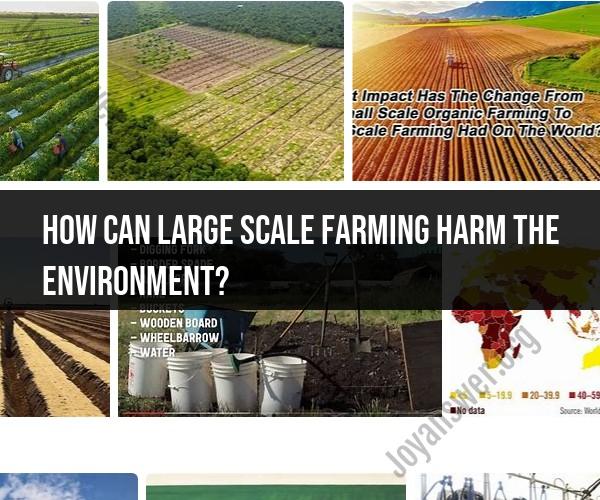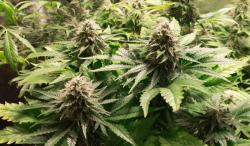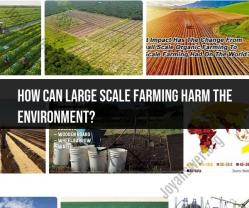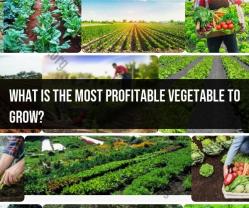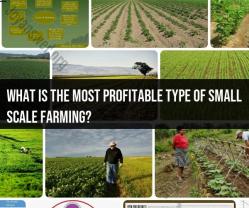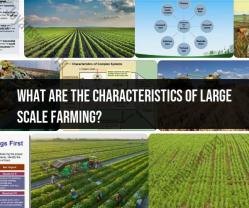How can large scale farming harm the environment?
1. Deforestation
Large-scale farming often involves clearing forests to create space for agriculture. This can result in the loss of biodiversity and contribute to climate change due to the release of stored carbon.
2. Habitat Destruction
Conversion of natural habitats into vast monoculture fields disrupts ecosystems and displaces native species, leading to a loss of biodiversity.
3. Soil Degradation
Intensive farming practices, including excessive use of fertilizers and pesticides, can degrade soil quality, causing erosion, nutrient depletion, and compaction.
4. Water Pollution
Chemical runoff from large-scale farms can pollute water bodies, leading to algal blooms, oxygen depletion, and harm to aquatic ecosystems.
5. Water Depletion
High water demand for irrigation in large-scale farming can lead to over-extraction of groundwater and surface water, contributing to water scarcity.
6. Greenhouse Gas Emissions
Fossil fuel use in farming machinery and methane emissions from livestock in large-scale farming contribute to greenhouse gas emissions and climate change.
7. Monoculture and Genetic Diversity
Large-scale farming often relies on monoculture practices, reducing genetic diversity and making crops and animals more susceptible to diseases and pests.
8. Antibiotic Resistance
Excessive antibiotic use in large-scale animal agriculture can lead to antibiotic-resistant bacteria, posing a threat to public health.
9. Loss of Cultural Landscapes
Traditional farming practices and cultural landscapes may be displaced by large-scale farming, leading to the erosion of cultural heritage.
10. Social and Economic Impacts
The concentration of land ownership and economic power in large-scale farming can displace small-scale farmers and contribute to social inequalities and rural poverty.
Environmental Impact of Large-Scale Farming: Causes and Consequences
Large-scale farming, also known as industrial agriculture, is a type of farming that uses large tracts of land and a high level of mechanization to produce large quantities of agricultural products. While large-scale farming can be efficient and productive, it can also have a significant negative impact on the environment.
Some of the environmental impacts of large-scale farming include:
- Water pollution: Large-scale farming uses large amounts of water, which can lead to water pollution from runoff of pesticides, fertilizers, and manure.
- Air pollution: Large-scale farming can contribute to air pollution from emissions from farm machinery and livestock.
- Soil degradation: Large-scale farming can lead to soil degradation from overuse of pesticides and fertilizers, as well as from erosion.
- Loss of biodiversity: Large-scale farming can lead to the loss of biodiversity by converting natural habitats into farmland and by using herbicides and pesticides that kill non-target species.
The Dark Side of Agribusiness: How Large-Scale Farming Can Harm the Environment
Agribusiness is a term used to describe the large-scale farming industry. Agribusiness companies often use intensive farming practices to maximize production and profits. These practices can have a number of negative environmental impacts.
For example, agribusiness companies often use large amounts of pesticides and fertilizers. These chemicals can runoff into waterways, polluting them and harming aquatic life. Pesticides can also kill beneficial insects, such as pollinators.
Agribusiness companies also often use genetically modified crops. These crops are often designed to be resistant to herbicides, which allows farmers to use more herbicides. This can lead to the development of herbicide-resistant weeds, which can make it more difficult to control weeds.
In addition, agribusiness companies often raise large numbers of livestock in confined animal feeding operations (CAFOs). CAFOs can produce large amounts of manure, which can pollute waterways and release greenhouse gases into the atmosphere.
Balancing Agriculture and Ecology: Mitigating the Environmental Effects of Large-Scale Farming
There are a number of ways to mitigate the environmental effects of large-scale farming. Some of these methods include:
- Using sustainable farming practices: Sustainable farming practices are those that protect the environment and conserve natural resources. Some examples of sustainable farming practices include crop rotation, cover cropping, and integrated pest management.
- Reducing the use of pesticides and fertilizers: Farmers can reduce their use of pesticides and fertilizers by using them more precisely and by using integrated pest management.
- Protecting biodiversity: Farmers can protect biodiversity by leaving buffer strips of natural vegetation around their fields and by planting hedgerows and windbreaks.
- Reducing livestock production: Reducing livestock production can help to reduce greenhouse gas emissions and water pollution.
It is important to balance the need for food production with the need to protect the environment. By using sustainable farming practices and reducing the use of pesticides and fertilizers, farmers can help to mitigate the environmental effects of large-scale farming.
